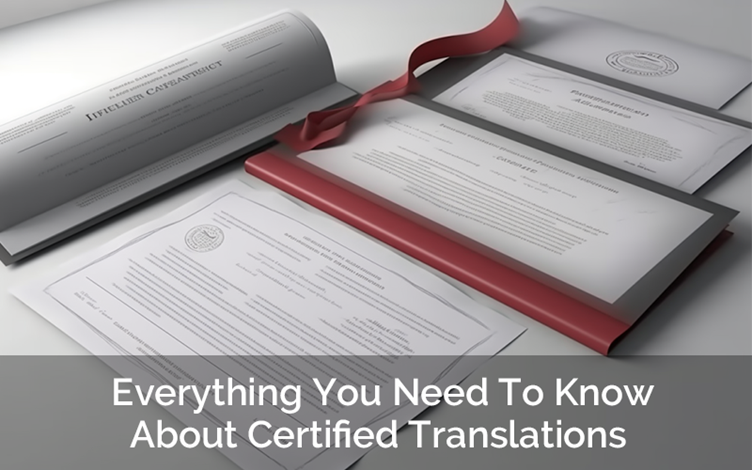
Certified Translation Services
Legalised and Certified Translations:
Undoubtedly, the world as we know it is rapidly changing. With recent developments in Artificial Intelligence (AI) and overall business globalisation, how we live and conduct business has changed significantly. Globalisation is, in fact, something that many business owners still need to accustom to in order to remain successful in a competitive international market.
Today, globalisation brings far more benefits than drawbacks. For one, companies can trade easily with business partners and customers anywhere in the world within seconds.
However, some intricate obstacles still remain in place.
Language differences and cultural aspects are some of the most prominent ones.
As a result, professional translators and officially registered translation agencies are today critical partners for a rapidly growing number of businesses that wish to take full advantage of the globalised world and successfully reach wider audiences.
Many people, however, still do not fully understand the true importance that lies within professional language translations. Whether conducted with the help of AI or entirely using a human linguist, certified translations of documents are essential not only within the corporate world but often also in our private lives.

What are certified document translation services?
The term ‘certified translation’ is often mischaracterised and misunderstood. Many people believe they can convert official documents because they can speak two languages, even fluently. This isn’t at all the case.
In order to make your translated documents legally recognised, the translation must be completed entirely by an accredited professional translator. To clarify what that actually means, we’ve spoken to Ashley Briggs, an expert representative of Translation Services 24, the UK’s leading translation agency specialising in certified and official document translations.
Ashley told us, “For your documents to be officially translated, certified, and legally recognised in the United Kingdom, an accredited provider must convert them directly. Whether it’s a freelance translator or an expert agency, such as TS24, depends solely on your individual preferences and language requirements.”
Additionally, Ashley told us that “there are several different types (or levels) of official certification, and each might be required to be supplied with your documents in different situations.” Thanks to her expertise in the subject, we’ll be able to discuss these certification types in more detail later in the article.
Who can translate and certify my documents?
As mentioned above, only officially registered translators or companies can legally translate and certify your documents, whether a complex project or a simple 1-page birth certificate.
You must decide whether to work with a translation company specialising in such certifications or directly with a professional translator.
Both approaches have benefits and drawbacks, and you should consider them carefully before making your final decision.
One of the most significant benefits of working with a professional translation agency is their swift communication and general expertise. Although generally slightly more expensive than working with a freelance linguist, a translation agency can simultaneously translate all document types and covers several languages. They should also be able to provide you with a specific certification type, whether a standard stamp/signature, sworn translation or even document notarisation.
What are the official translation bodies in the United Kingdom?
Saying that the translator or agency must be ‘officially registered’ to complete your translation legally may not actually mean all that much to you.
What that means in practice, is that the person/company translating your content must be registered with professional bodies in the United Kingdom, such as:
- CIOL (Chartered Institute of Linguists)
- ATC (Association of Translation Agencies)
- ITI (Institute of Translators & Interpreters)
Other countries, for example, Spain, France or Poland, have their specific certification requirements that must be followed if you submit your application documents in these countries. Generally, this type of certification is known as ‘sworn’, and it requires that the translator not only be officially registered with a translation body but must also be registered in the Court of Law / Home Office.
How much should a certified translation cost?
The price for a professional translation and certification of your documents depends on the provider you choose to work with and the specific type of certification your documents require.
Generally speaking, however, the price for this service shouldn’t be eye-watering. Most professional translation companies can officially convert your papers and certificates into another language for around £50 ($65). Freelance translators can usually do it for an even lower price and sometimes charge on a ‘per-word’ basis.
What are the most common translated documents?
What better way to find out the answer than asking an expert directly? So, again, we spoke with Ashley from Translation Services 24 (TS24), who kindly shared with us her professional take.
She said, “When it comes to business and corporate clients, legal documents such as contracts, financial papers or technical guides are among the most popular documents we translate, and we see them daily. Private clients, on the other hand, frequently need certificates, passports or education papers accurately converted into English or another language. It’s also interesting to note that although our corporate clients regularly need marketing content, such as websites, brochures, articles or international campaigns translated, these do not necessarily require a certification, most of the time, as they are not typically submitted as part of an official legal application.”

What are the different document certification types?
In the United Kingdom, we recognise 3 essential types of certified translations, and these are:
- Standard Certification
- Notarised Translation
- Apostille
Each of these is required in different situations, and it can only be directly requested by the interested party where your application takes place. So, if you’re applying for a passport, you must clarify with the Government or Home Office which specific certification type they require. In fact, the UK Government website states: “Any foreign-language document on which the applicant wishes to rely must be accompanied by an English translation of reliable quality.”
Fortunately, the standard certification type registered translators and agencies provide is usually sufficient for most applications within the United Kingdom. It comes with a signature, stamp and a cover letter with the translator’s details, legally providing the document’s authenticity.
If you, however, require an additional level of certification, you may need to speak to a solicitor or a lawyer to acquire a notarised translation or an apostille. Some professional agencies may also offer this service as they partner with legal firms.
So…
Getting a professional and legally certified translation service is more challenging than it might seem. First, you must determine the legalisation type required for your application and decide whether to work with a translation company or a freelance translator. However, once you have these answers, the translation process can be left to the professionals.







